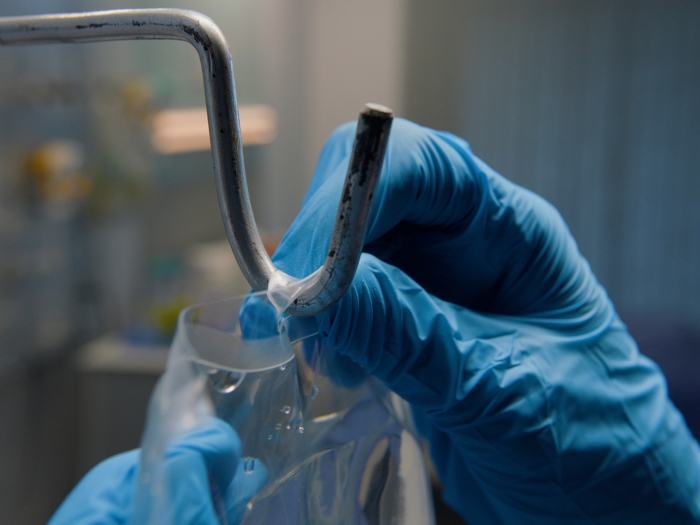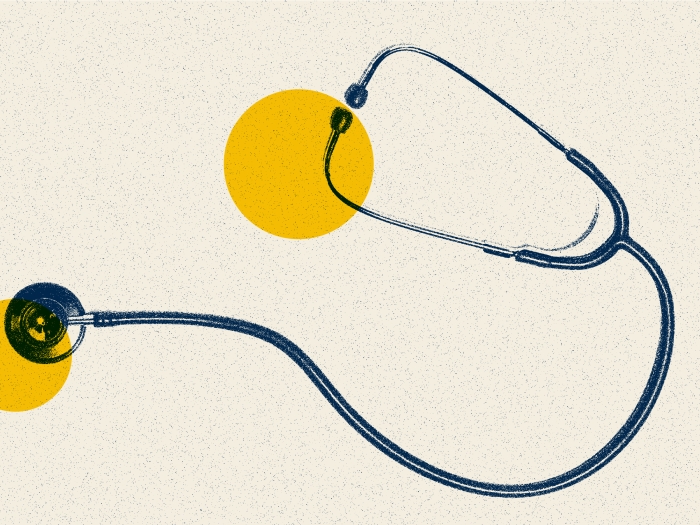Lead Research Communicator
Malcom is a lead research communicator for Michigan Medicine and research communications strategist for the U-M Medical School, with more than 20 years of experience in strategic communications, marketing, and health and science writing. She covers the basic science departments, pulmonary and critical care medicine, infectious disease, pathology and anesthesiology. Contact: [email protected]


Health Lab
Researchers examined how a pathology explanation clinic, or PEC, could improve the experience of a small group of patients newly diagnosed with prostate cancer.
News Release
Amy Kilbourne, PhD, MPH, Associate Chair for Research and Professor of Learning Health Sciences at U-M Medical School has been appointed Executive Director of Health Systems Research for the U.S. Department of Veterans Affairs Health System, effective June 30, 2024.

Health Lab
How a gene for obesity affects the brain: The discovery could lead to new treatments for metabolic diseases with fewer side effects

Health Lab
The pediatric spinal anesthesia program offers a needle-based technique that provides sensory and motor block without the need for intubation or general anesthesia for pediatric surgical procedures below the belly button. This means the patient will not feel anything below chest level.
News Release
The multi-institution grant will establish a novel approach to identify individuals at increased risk of hip fragility fractures.

Health Lab
Michigan Medicine research finds that patients with chronic pain who use either substance may find it harder to find primary care physician than those who don’t.

News Release
A new NIH award will establish the Michigan Infectious Disease Genomics (MIDGE) Center, the goal of which is to use whole genome sequencing and functional genomic assays to determine how genetic differences among strains or isolates affect the behavior, transmission, and drug resistance of viral, bacterial, and fungal pathogens.

Health Lab
A study shows circadian rhythm drives the release of important immune cells in the body.

Health Lab
Two new studies from University of Michigan reveal what's happening inside the brain during sleep and sleep deprivation to help or harm the formation of memories.

Health Lab
Michigan Medicine researchers discover that a new drug could help those with CAH, or congenital adrenal hyperplasia, reduce the use of corticosteroids.

Health Lab
The newest version of the heparin reversal drug, described in a recent issue of Advanced Healthcare Materials, adjusted the number of protons bound to it, making the molecule less positive so it would preferentially bind to the highly negative heparin, resulting in a much safer drug.

Health Lab
In emergency rooms and intensive care units across the country, clinicians make split-second decisions about which antibiotics to give a patient when a life threatening infection is suspected. Now, a study reveals that these decisions may have unintended consequences for patient outcomes.

Health Lab
A study builds on previous work that found depriving T cells of iron prevented cells from proliferating. The current study, published in PNAS, found that excess iron is just as problematic.

Health Lab
Research published in PNAS examines how the bacteria Escherichia coli, or E. coli—responsible for most UTIs—is able to use host nutrients to reproduce at an extraordinarily rapid pace during infection despite the near sterile environment of fresh urine.

Health Lab
A JAMA viewpoint outlines the tragic story of Shandra Eisenga, a patient who received spine surgery for back pain only to inexplicably contract tuberculosis.